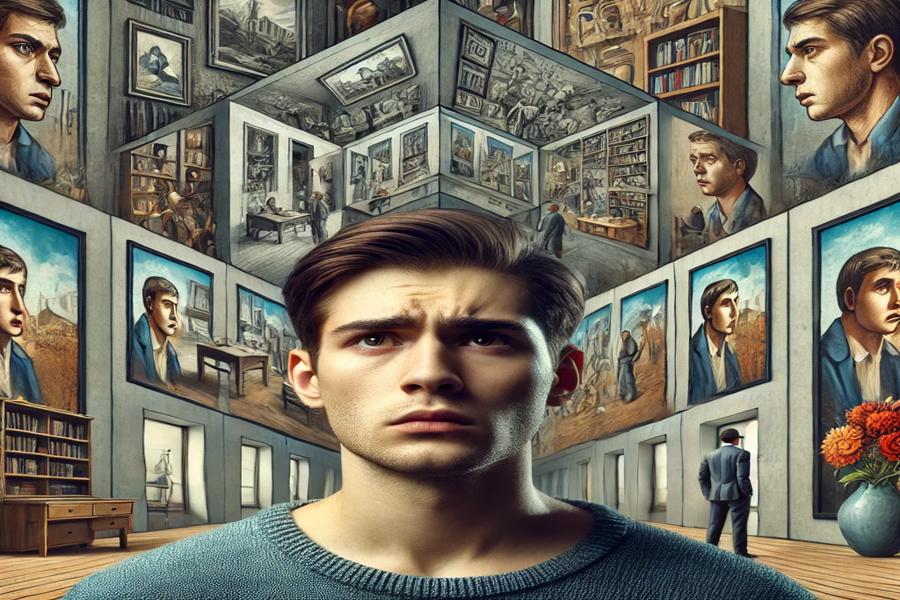Table of Contents
13 Bizarre Psychological Disorders That Challenge Our Understanding
The human mind is a complex and fascinating organ, capable of incredible feats but also prone to mysterious and bizarre disorders. Here are 13 bizarre & Surprising psychological disorders that challenge our understanding of mental health and highlight the incredible diversity of human cognition.
1. Capgras Delusion
Capgras Delusion is a rare condition where a person believes that a close friend or family member has been replaced by an identical impostor. This delusion is often associated with schizophrenia, dementia, and brain injuries, and it highlights the fragile nature of our perception of identity.
2. Cotard’s Syndrome
Also known as “Walking Corpse Syndrome,” Cotard’s Syndrome is a disorder where individuals believe they are dead, do not exist, or have lost their internal organs. This extreme form of nihilism can lead to severe depression and withdrawal from reality.
3. Alien Hand Syndrome
Alien Hand Syndrome is a condition where a person’s hand seems to act on its own, performing actions without the person’s control. This disorder often occurs after brain surgery or stroke and illustrates the complexities of motor control and conscious will.

4. Erotomania
Erotomania is a delusional disorder where an individual believes that another person, often a celebrity or someone of higher status, is in love with them. This belief persists despite clear evidence to the contrary and can lead to stalking and other problematic behaviors.
5. Fregoli Delusion
Fregoli Delusion is the belief that different people are a single person in disguise. Named after an Italian actor known for his quick-change acts, this delusion often occurs in people with paranoid schizophrenia and highlights the mind’s ability to create intricate false narratives.
6. Reduplicative Paramnesia
Reduplicative Paramnesia is a rare disorder where a person believes that a place has been duplicated and exists in two or more locations simultaneously. This condition is often seen in patients with brain injuries, particularly in the right hemisphere.

7. Klüver-Bucy Syndrome
Klüver-Bucy Syndrome is a neurological disorder resulting from damage to the temporal lobes. Symptoms include hypersexuality, compulsive eating, and a lack of fear. This syndrome demonstrates the crucial role of the temporal lobes in regulating behavior and emotion.
8. Munchausen Syndrome by Proxy
Munchausen Syndrome by Proxy (MSBP) is a disorder where a caregiver, usually a parent, fabricates or induces illness in another person, typically their child, to gain attention and sympathy. This disorder is a form of abuse and poses significant challenges for healthcare providers in diagnosis and treatment.
9. Apotemnophilia
Apotemnophilia, or Body Integrity Identity Disorder (BIID), is a condition where individuals have a strong desire to amputate healthy limbs or become paralyzed. This disorder is associated with a mismatch between one’s physical body and their internal sense of self.

10. Pica
Pica is an eating disorder where individuals consume non-nutritive substances such as dirt, chalk, or hair. This disorder can lead to serious health complications and is often associated with nutritional deficiencies, pregnancy, and mental health disorders.
11. Trichotillomania
Trichotillomania is a compulsive disorder where individuals have an irresistible urge to pull out their own hair, leading to noticeable hair loss and emotional distress. This condition is categorized under obsessive-compulsive and related disorders.
12. Diogenes Syndrome
Diogenes Syndrome is characterized by extreme self-neglect, hoarding, and social withdrawal. Named after the ancient Greek philosopher Diogenes, who advocated for a simple life, this disorder is often seen in elderly individuals and is associated with severe psychiatric and medical conditions.

13. Stendhal Syndrome
Stendhal Syndrome is a psychosomatic disorder where individuals experience dizziness, rapid heartbeat, and even hallucinations when exposed to art, particularly when the art is exceptionally beautiful or overwhelming. This syndrome highlights the profound impact that art can have on the human psyche.
Conclusion
These 13 bizarre psychological disorders reveal the incredible complexity and variability of the human mind. Each disorder offers a unique glimpse into the ways that mental health can be disrupted, challenging our understanding of normalcy and highlighting the need for continued research and compassion in the field of mental health. Exploring these conditions broadens our knowledge and fosters empathy for those with these extraordinary challenges.
Our lists are to educate and to entertain, if you or anyone you know is suffering from one of these conditions reach out and get the help needed.
